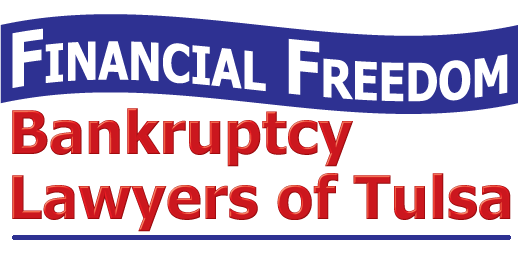Oklahoma Bankruptcy HelpCan You File Bankruptcy on Medical Bills in Oklahoma
Medical care is expensive in this country, and for many, medical bills can be one of the main drivers of a bankruptcy filing. A hospital stay in Oklahoma can rack up tens of thousands of dollars in debt – enough debt that even without other liabilities, debtors will often seek to discharge medical debt through bankruptcy. The good news is that whether you are seeking to file bankruptcy in Oklahoma under Chapter 7 (liquidation) or Chapter 13 (reorganization), medical bills are dischargeable under the bankruptcy laws in Oklahoma.
Medical Insurance Doesn’t Cover Everything
Even if you are lucky enough to have “good” medical insurance in the United States, it likely won’t cover everything. There are out-of-pocket costs, deductibles, co-pays, and medications and procedures that insurance just doesn’t pay for.
Say you have a good plan – it covers 80% after a $5000 deductible, and it doesn’t cover certain medications that are necessary. On an average year, you may be spending between $5000 and $10,000 a year in medical costs—if nothing really goes wrong. But say you need surgery or cancer treatment; your medical costs can skyrocket. If you don’t file for bankruptcy, you could lose your home, your car, and even your peace of mind.
Handling Medical Bills in Bankruptcy Depends on the Type of Relief Sought
In Chapter 7, all unsecured debt can be gathered together and discharged if you qualify for liquidation under the means test in bankruptcy. Bankruptcy law treats medical debt like credit card debt in that both are unsecured, meaning there is no collateral property that secures the debt. Unsecured debt is the most likely to be discharged in bankruptcy. In this type of bankruptcy proceeding, most debtors do not have any real property that may be sold to pay their debt, so the debt is wiped clean. There are negative consequences on your credit report, but often the relief is well worth the price.
If you have a home you would like to keep, or a steady job, you may wish to consider filing bankruptcy under Chapter 13 in order to deal with your medical debt. In a Chapter 13 bankruptcy, a repayment plan is worked out. It is usually in effect for three to five years. During that time, the debtor makes monthly payments to the trustee who in turn divides that money among the creditors. Any debt still in place after the plan expires is discharged.
This can leave the debtor in a better position in terms of their credit rating, but it requires a steady commitment over a protracted time. If you are considering filing for bankruptcy for any reason, it can be helpful to consult with an experienced Tulsa bankruptcy attorney. Every situation is different, and you want to ensure that you make the move that is right for you.
Free Consultation with a Tulsa Bankruptcy Attorney
Financial Freedom Bankruptcy Lawyers of Tulsa offer free consultations to help debt-burdened Oklahomans to discover the best approach to their financial crisis. Call us at (918) 786-9600 to start your free consultation today. You may also contact us using the contact form button on this page to ask a professional Tulsa bankruptcy lawyer your personal questions.
Tags: medical bills in bankruptcy, medical debt in bankruptcy, Tulsa Oklahoma bankruptcy attorneys, Tulsa Oklahoma bankruptcy lawyers





